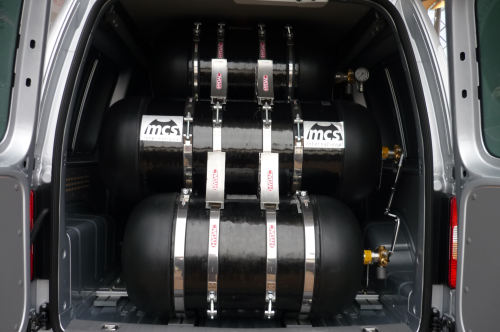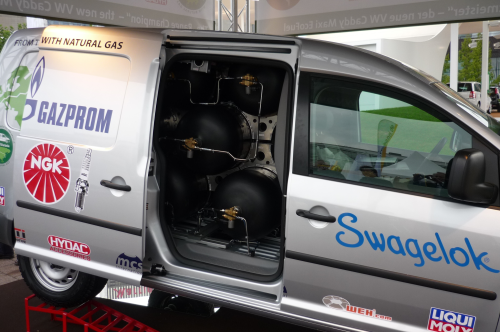

The MCS technology is based on a carbon fibre epoxy matrix system. The composite fuel tanks are said to be over 55% lighter than the steel cylinders typically used as compressed natural gas (CNG) fuel tanks. The composite fuel tanks enabe greater distances to be travelled with no need to refuel.
MCS chose Araldite® LY 564 low viscosity epoxy resin, Aradur® 917 anhydride hardener and 960-1 Accelerator from Huntsman Advanced Materials. Used in the filament winding process, this hot curing epoxy system helps to produce structural parts and components that are lightweight and extremely durable.
“As well as offering attractive operational features such as low viscosity, a long pot life and short cure times, we were most impressed with the Araldite® system’s supreme resistance to the pressure load that enables this new generation of composite cylinders to hold far greater volumes of fuel,” says Heinz Kubitza, director of engineering at MCS. A CNG powered Volkswagen Caddy EcoFuel fitted with CNG composite pressure fuel tanks developed by MCS has been travelling the world. Driver Rainer Zietlow selected the higher capacity composite gas tanks a part of his quest to drive the planet’s longest highways using locally fuelled natural gas, whilst maximising the time spent on the road.
According to figures published in March 2010, Zietlow’s VW Caddy EcoFuel, powered by CNG has travelled almost 20 000 miles on its current journey with savings on its CO2 emissions of some 20% compared to a standard 1.6 litre petrol engine.





